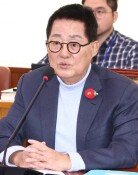Suggestions on how to save Korea`s troubled hotel sector
Suggestions on how to save Korea`s troubled hotel sector
Posted March. 01, 2013 07:28,
Park Hyeon-jun, 47, who runs Samwon Plaza Hotel in Anyang, Gyeonggi Province, pays a lot for the TV licensing fee imposed on each TV. The fee per unit is 2,500 won (2 U.S. dollars), so his hotel`s 70 sets cost him 175,000 won (161 U.S. dollars) per month.
On top of this, he also pays for satellite TV for foreign guests, who account for 97 percent of his guests. The cost might seem insignificant given that the monthly revenue of the first-class tourist hotel is about 120 million won (110,000 dollars). But the hotel is struggling to stay afloat, barely maintaining a surplus over the past a few years. The 2009 abolition of the zero tax rate for the tourist accommodation business dealt the biggest blow, cutting revenue 10 percent at one time.
The 50-percent discount on property tax for land and buildings according to the ratios of foreign guests will also expire next year.
The number of the hotel staff fell from 110 in 1980, when it was founded, to about 20 now. Park has to serve as parking manager when other staff are busy. The hotel does not even have full-time bellboys.
○ Hotels laying off employees due to fixed expenses.
The Korea Tourism Association recently submitted a list of requests titled, Tasks for Deregulation of the Tourism Industry and Improvement of the System to the Culture, Sports and Tourism Ministry. The list includes amendments to the TV license fee system, expansion of tax benefits under the Tax Reduction and Exemption Control Act and allowance of separated taxation of property.
One of the biggest obstacles in the tourist hotel business is rules on parking lots stipulating specific sizes for them vis-a-vis hotel construction. When building his hotel, Park also constructed a four-story parking building with capacity for 70 cars across from the hotel.
The enforcement ordinance on parking lots requires parking space for one car every 200 square meters. The hotels parking building is almost useless because its low ceiling allows only sedans to enter. Most of the guests go to the hotel by tourist bus, taxi or walking, leaving the parking lot empty.
○ Tourism & accommodation sector creates jobs
The tourism and accommodation business, an outstanding example of a chimney-less factory, creates more jobs than other sectors because of the focus on human services. Experts say that if the number of foreign tourists surpasses the governments goal of 12 million by 2016, an additional 16,400 rooms will be necessary. Given that a room at a five-star hotel creates 1.1 jobs on average, 18,000 jobs can be created.
Sources in the hotel industry, however, say that to create jobs, the system needs adjustment first. They say hiring is not easy because of the huge early investment and operating costs for the construction of a tourist hotel.
Gyeonggi Research Institute said in a report on five strategies to foster the hotel business that large initial investment is needed because land in good locations with easy access is expensive while costs for interior design and furniture are also high for tourist hotels. Revenues, however, are generated over a long-term period.
The average profit of first-class hotels in Gyeonggi Province last year was 2.2 percent, making capital investment or hiring employees difficult.
○ Hotel evaluation based on quality of service, not size
Small tourist hotels say deregulation of hotel construction and cuts in a variety of fees are necessary to boost the hotel industry. In particular, they say the zero tax rate on accommodation service and food provided to foreigners must be restored.
The zero rate tax was introduced in 1977 to enhance price competitiveness of the tourism and accommodation business, but the government has repeated abolition and restoration of the law until it most recently scrapped it in the 2010 tax reform. Temporary exemption of electricity, gas and other charges for hotels with high occupancy rates of foreign guests was also abolished.
Hotel experts also say the hotel evaluation system needs to be changed from the existing size-based grading system. Important standards for hotel grades in Korea include the following: size and number of rooms, bathroom size, restaurant size, facilities for international conventions and the size of the lobby, and parking lot size in front of the entrance.
In contrast, the most important criteria for hotels in Europe and the U.S., where the tourism industry is highly advanced, are quality of accommodation and food and beverage service. This allows a small hotel to receive a high rating as long as customers are satisfied with the service.
Kim Hyeon-ju, a researcher at the Korea Culture and Tourism Institute, said, The same standards applied to special five-star hotels are also applied to three-star hotels. Hotel evaluation standards need to be adjusted as the number of accommodation facilities providing various services is increasing in Seoul and metropolitan areas.







